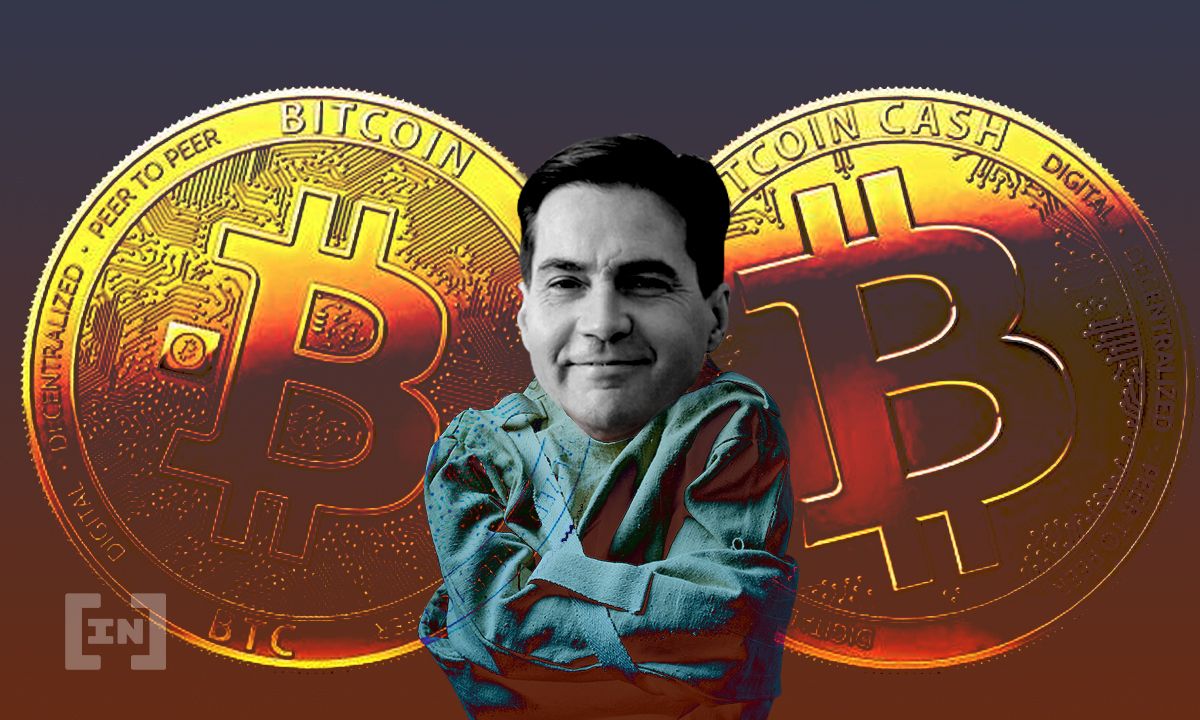Stand up as the Bitcoin moves out of your sight
Satoshi Nakamoto: Chicago rapper Kanye West, aka Ye, was seen this week channeling his crypto swag with a Satoshi Nakamoto cap. The fashion statement was made in an apparent jibe at JP Morgan Chase, which told the billionaire to find a new bank. It may be the latest indicator of how much Bitcoin has disrupted the usually conservative financial world.
West has been reveling in the “fad of disappearing” lately. He turns up at public events with his face covered by a full-length mask and bends the rules of fashion to exist outside the radar of the accepted world.
It is not difficult to imagine Satoshi Nakamoto, the anonymous founder of Bitcoin (BTC), as a kindred spirit for West. Not least because they both have targeted institutional funding with inclusion arguments.
Satoshi and Bitcoin: From Radical Utopian Money to Largest Online Currency
With 300 million users, roughly 4% of the world’s population, there is no doubt that Bitcoin has grown over the past 13 years. From the radical utopian idea of money that many called a crazy dream in January 2009, to one of the largest online transaction platforms in the world.
The achievement of Bitcoin is enough to make the minds behind the cryptocurrency the rock star of global finance. But they decided to remain anonymous under the alias Satoshi Nakamoto. Bitcoin has spawned a crypto industry that is now worth $913 billion in capitalization, down from $3 trillion last November.
Until now, Nakamoto’s real identity has remained shrouded in secrecy. Some claim it was a team, while others claim it was a person who preferred not to be known. What is certain is that some individuals have tried to bask in the glory of the work of the enigmatic Bitcoin founder.
Perhaps the most prominent is Craig Wright. The Australian computer scientist has occasionally claimed to be the Bitcoin founder since 2016. Wright has not convincingly supported his claims, making outrageous statements whenever he is questioned.
Recently, he told a Norwegian court that he had stomped on the hard drive that carried the key discs that prove he actually minted the first Bitcoin. Wright’s claims illustrate how Bitcoin has been compromised in recent years.
Important selling points
One of the main selling points for the digital currency from its launch days was how it was relatively secure compared to holding fiat currencies. However, security breaches have recently dogged cryptocurrencies.
Although Bitcoin itself has never been made vulnerable to attack, cryptocurrencies were exposed to hackers. In 2022 alone, the crypto industry lost $2.32 billion to malware and cyber attacks, according to blockchain security firm Peckshield.
That’s almost the size of Zimbabwe’s annual national budget lost to hackers. This contradicts reflections shared in the seminal Bitcoin Whitepaper by Nakamoto in 2008.
“A certain percentage of fraud is accepted as inevitable,” Nakamoto said. “These costs and payment uncertainties can be avoided in person by using physical currency, but there is no mechanism to make payments over a communication channel without a trusted party.”
Furthermore, Nakamoto wrote:
“What is needed is an electronic payment system based on cryptographic proof rather than trust, which allows any two willing parties to transact directly with each other without the need for a trusted third party. Transactions that are computationally impractical to reverse will protect merchants from fraud, and routine escrow mechanisms can be easily implemented to protect buyers.”
Unfortunately, this has not been the case, as those who rely on cryptocurrency, especially new platforms like Wormhole Bridge, have bled through hacks.
Satoshi: Has he lost control of his vision?
The Hollywood leftist cult classic, Fight Club, ends with the narrator (Edward Norton) watching, arm in arm with his girlfriend, as the credit card company buildings burn. He has given his anarchist followers the memo to remove the world from the existing financial world so that the world can start over.
But once this order is carried out, the unnamed narrator is no longer in control of the situation. His dissociative splinter persona Tyler Durden (Brad Pitt) is in charge. He drummed up such conviction in his followers that they go to lengths not previously imagined by the narrator.
Like Edward Norton, the founder of Bitcoin, Satoshi Nakamoto, is not only behind an alias, but he has an anarchic vision for credit card companies, banks and all of global finance. Has he lost control of his vision from a place of anonymous detachment?
Recently, there has been a departure from the principle of decentralization and privacy in crypto. In April, Ethereum-based crypto mixer Tornado Cash announced that it had begun blocking addresses sanctioned by the US Office of Foreign Assets Control.
The announcement indicated the direction the crypto industry was taking in terms of regulation. For governments, crypto is becoming too mainstream to ignore and too chaotic to neglect.
Government agencies
All over the world, government agencies are targeting crypto investors not only with taxes, but mandatory registration and full disclosure rules.
Government regulation increasingly appears to be the price the crypto community must pay for assimilation into the mainstream economy. It raises questions about the direction of the industry, particularly whether decentralization as a tool to resist censorship is a myth.
US President Joe Biden recently issued an executive order justifying his government’s intervention in sovereign finances for reasons of “national security”.
“We must reduce the illicit financial and national security risks posed by the misuse of digital assets,” Biden said. “Digital assets can pose significant illicit financial risks, including money laundering, cybercrime and ransomware…terrorist financing.”
Regulation of Bitcoin
Individuals who wish to operate in an isolated system, away from central bank and government oversight, are increasingly confronted with new top-down demands on the industry. They include closing down companies and freezing accounts.
Some of the regions that have weaponized statute books to control aspects of the use of digital assets include China, India, Malaysia, Australia, Japan, the European Union, and the United States
Much of the intrusion by governments goes against what Nakamoto envisioned. He said there should be no third-party players like banks and governments involved in Bitcoin, and by extension other crypto assets.
For example, the US government is emphasizing cryptocurrency under the stimulus of sanctions-busting operations by its enemies, North Korea, Venezuela, Belarus and others.
A 2019 UN report estimated that North Korea had earned $2 billion from such operations, which included the theft of cryptocurrencies, random attacks and other shady practices.
A 2020 US asset forfeiture filing detailed a $250 million crypto theft by North Korea’s flagship sanctions violator, the Lazarus Group. The US Department of Justice sought to freeze 280 wallet addresses allegedly used by hackers to launder stolen funds.
The department notes with approval the increasing sophistication of the FBI in “tracking and seizing virtual currency, which criminals previously thought was impossible.” It emphasized that the anonymity of the internet is no longer a cover for cybercrime.
Searching for Satoshi
The world Satoshi created seems to gravitate more towards being a glorified fiat currency, operating online. It is becoming detached from its fundamental ethos that prioritizes decentralization and privacy.
But where will Nakamoto weigh in on these issues? Is he alive? Is he on a beach in the Maldives? Or is he in a basement in Florida or basking in the sun in Cape Town? Now that Bitcoin has become a global success, doesn’t he want to bask in the glory?
If Bitcoin founder Satoshi Nakamoto decides to come home, will the crypto transition be able to look past its institutional dalliances and geopolitical gambits to recognize him?
Perhaps Satoshi knows he already has the Bitcoin community’s work cut out for them. His democratic model for them rather than his own celebrity appeal may be what Bitcoin needs to return to its traditional values.

Bitcoin maximalists holding the fort
In Nakamoto’s absence, another group of Bitcoin die-hards is holding the fort. They call themselves “Bitcoin Maximalists.” The fundamentalists believe that BTC is the only crypto-asset that will be needed in the future, according to the online dictionary Investopedia.
They believe that all other digital currencies are inferior to Bitcoin and that they fall against the ideals envisioned by Nakamoto. But Bitcoin has had trouble handling increased transaction volumes, leading to the emergency of other blockchains that can do so.
A number of the maximalists are unwavering in their defense of Bitcoin’s fundamental ethos. They have also faced criticism for championing a strategy that has failed to grow Bitcoin into a productive asset, like Ethereum.
“The maximalist narrative has lost touch with reality,” Muneeb Ali, founder of Bitcoin open source smart contract platform Stacks, tweeted in the past. “Bitcoin maximalism assumes a zero-sum world. However, we are in an expanding crypto-economy.”
Will the real Satoshi Nakamoto please stand up?
Got something to say about Satoshi Nakamoto or something else? Join the discussion in our Telegram channel. You can also catch us on Tik Tok, Facebook or Twitter.
Disclaimer
All information on our website is published in good faith and for general information purposes only. Any action the reader takes on the information contained on our website is strictly at their own risk.



